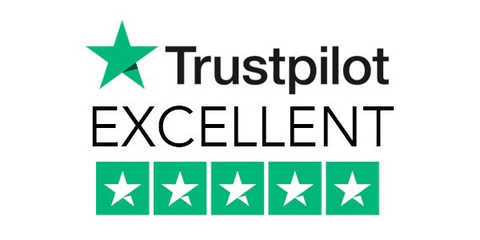Many sites experience issues with HCU (Helpful Content Updates) and Google’s Core Updates. Here’s what to do to avoid them (or recover).
Crashing during a major Google update is very painful and stressful. It’s often challenging to understand why and complicated to correct and improve everything that needs correction. So, I decided to share with you the fruits of my work. Since September 2023, I’ve been in contact with many people whose sites went down on Google, sometimes severely, jeopardizing their companies.
In this article, I list all the key points you must follow, whether to recover or prevent future issues. Some best practices are characteristic of sites that have thrived with HCU and Core Updates, while others are common to sites that have collapsed.

Until you’ve addressed all these points, consider that you haven’t given yourself every chance of success.
For each point, I’ve described it, explained why it’s important to respect it, and provided concrete actions for your site.
Here we go!
The Checklist to Follow
I highly recommend applying these 12 tips. If you don’t, you can’t complain that your SEO is degrading.
Tip N°1: Think globally, not just about the best pages or the newest ones on your site. Many aspects of Google’s algorithm are sitewide, especially evident with HCU in September 2023.
Tip N°2: Consider the QUALITY of your content. Whether with AI, without AI, or a mix of both, your mission is to seduce your readers. This includes a good UX and, more importantly, user satisfaction, especially those coming from Google.
Tip N°3: Focus on the development of your BRAND in all its forms and across all media.
Tip N°4: Think about internal linking! In addition to external linking (backlinks), take advantage of the power of this technique—it costs nothing but a little time.
Tip N°5: The first screen, especially on mobile, should convince the user they’ve arrived at the right place with high-quality content, meeting their needs (search intent). Be cautious of advertising!
Tip N°6: Show Google that your site is an expert on a topic (or several if you have the capacity) instead of skimming over many topics superficially.
Tip N°7: Check that planned site updates went well and that nothing unforeseen has broken your SEO. In other words, watch your site like milk on the stove!
Tip N°8: Avoid backlinks that raise red flags with Google’s spambrain algos (see details). They are the cause of many SEO shipwrecks, and the issue intensifies with each update.
Tip N°9: Monitor the QUALITY of your external outbound links.
Tip N° 10: Fix your crawl and indexing issues.
Tip N° 11: Act like an “eco-friendly” website: reduce your site’s carbon footprint. Eco-friendly SEO exists!
Tip N° 12: Analyze the performance of your directories to identify content types that appeal the most to Google. Then, develop more of these types of content that work well!
A little bonus for the road: avoid relying 100% on Google’s organic results and Google Discover. Also, think about social networks (for communication and advertising), email campaigns, videos, images, and platforms (marketplaces and others)…
Other major tips on these algorithms:
- Sitewide Impact:
These algorithms have a sitewide impact. Google’s algorithms assess the entire website. This is a crucial point to understand and not forget. - Quality Over Quantity:
If your site has too many low-quality pages, it’s possible that their presence could negatively affect the overall rating calculated by Google. This is why they’re referred to as “zombie pages.” The worst (indexable) pages on your site can harm the good ones. - Health Check for Your Site:
It’s imperative to conduct a comprehensive health check of the overall quality of your site. You should be able to easily answer the following questions based on concrete data:
- Are the majority of my pages optimized for fundamental SEO practices?
- Are newly published pages (recent ones, not from 10 years ago) of impeccable quality?
- Is the priority placed on quality rather than the quantity of pages published?
By addressing these aspects, you can enhance the overall health and performance of your website in the eyes of Google’s algorithms. Quality content and optimization should be prioritized over sheer volume, especially in the context of ongoing content creation.
Did you like this article? Do not hesitate to share it on social networks and subscribe to Tech To Geek on Google News or our facebook page to not miss any articles!"Because of the Google update, I, like many other blogs, lost a lot of traffic."
Join the Newsletter
Please, subscribe to get our latest content by email.

